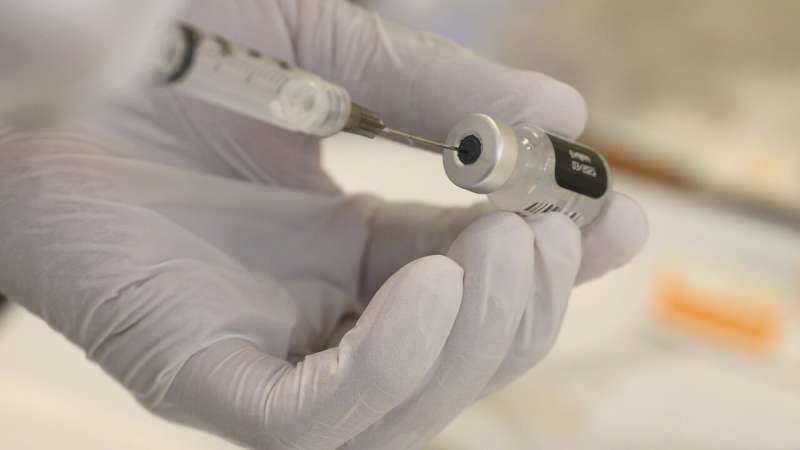If you’ve had COVID-19 and you received two doses of the Pfizer-BioNTech vaccine, should you still get a booster if you are eligible? The answer is yes, according to Michael Lin, MD, MPH, an infectious disease specialist and associate professor at Rush.
That’s because guidance from the Centers for Disease Control and Prevention doesn’t take into account whether or not someone has had COVID-19. “There are a variety of reasons for that,” Lin explains. “There are some people who had the classic symptoms and believe they had COVID-19 but actually did not. And currently, there are no reliable laboratory tests to determine if somebody had COVID-19 in the past.”
It’s true that if you’ve just recovered from COVID-19, you have probably developed antibodies that give you some protection against a future infection for about 90 days. The problem is that while some people have a very robust antibody response, many others do not, Lin says.
“This makes it very difficult to base any public health guidance on a prior history of COVID. So my advice to patients would be to follow CDC guidance on vaccinations whether or not you’ve had COVID,” he says.
Who’s eligible for a booster?
The CDC recently expanded eligibility for booster shots and provided booster recommendations for all three available COVID-19 vaccines in the United States.
For those who received a Pfizer-BioNTech or Moderna COVID-vaccine, the following groups are eligible for a booster at six months or more after their initial series:
- People 65 and older
- Those 18 and older who live in long-term care settings
- Those 18 and older with underlying medical conditions
- People 18 and older who work or live in high-risk settings
For people who received the Johnson & Johnson vaccine, booster shots are also recommended for those who are 18 and older and who were vaccinated at least two months ago.
The CDC also says that those who are eligible for a booster may choose which vaccine they receive as a booster. In other words, they may stick with their original vaccine type or get a different booster.
Laura Hegwer, Rush University Medical Center


